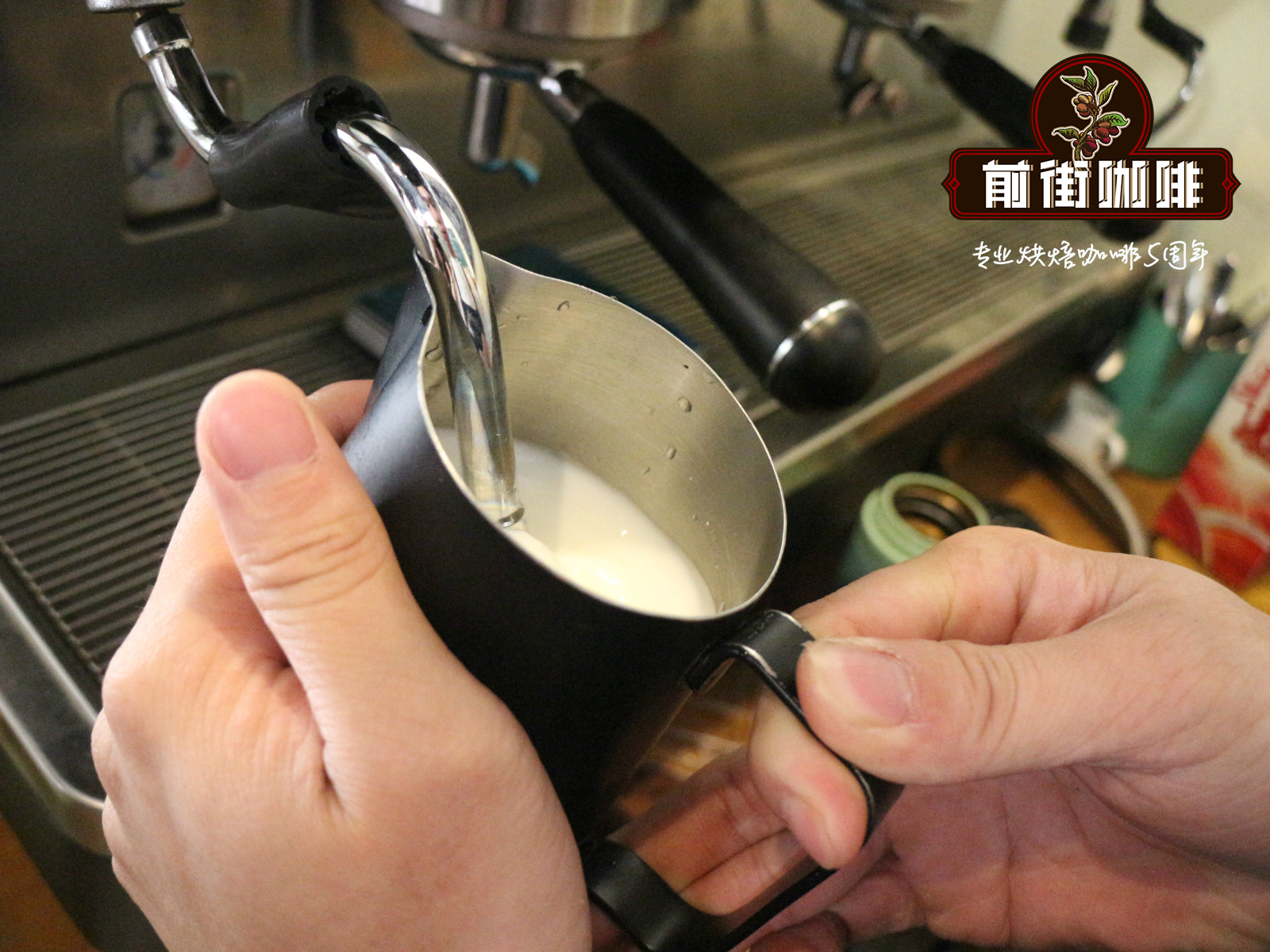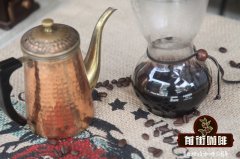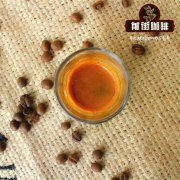Introduction to the Development History of Baoshan Coffee Industry _ Xinzhai Farm Coffee Price _ Xinzhai Coffee Manor experience

Professional coffee knowledge exchange more coffee bean information please follow the coffee workshop (Wechat official account cafe_style)
Speaking of coffee, how does it make you feel? The smell of coffee when you get up in the morning awakens the spirit of the day. And coffee, not only the taste and aroma, brings us more emotional enjoyment. Some people say it is romantic, others say it is a petty bourgeoisie.
What is the criterion for evaluating "good coffee"? I think the criterion for good coffee is to find the taste that suits you best.
Why did you come to Yunnan to look for small grains of coffee? Yunnan small grain coffee is very famous, small grain coffee is Arabica species, originated in Ethiopia or Arabian Peninsula, distributed in China in Yunnan, Fujian and other provinces.
The main producing area is in Yunnan, so the main producing area of coffee beans in China is in Yunnan. Yunnan small grain coffee is strong but not bitter, fragrant but not strong, with a little fruit flavor, cultivation techniques and coffee flavor are widely recognized by experts.
After the founding of New China, the development history of Baoshan coffee industry has mainly experienced four stages:
two
The first stage is the initial stage. In the 1950s, Baoshan small-grain coffee was successfully popularized and planted in Lujiang Dam, and the planting area of coffee in the city was nearly 10,000 mu by 1960.
two
The second stage was the landslide stage, and the planting shrank in the early and middle 1960s due to the influence of market and diseases. by the end of 1970s, the planting area of coffee in the city was only 0.3 mu.
three
The third stage is the restart stage. in the late 1980s, with the participation of the Yunnan project assisted by the United Nations Development Programme and the specialized coffee production groups such as Nestle and McDonnell, the price of coffee increased, up to 30 yuan per kilogram. Baoshan Coffee started again. By 1997, the planting area of coffee in the city was nearly 30,000 mu.
six
The fourth stage is the stage of rapid development. Since the start and implementation of the province's biological resources development project, Baoshan coffee industry has developed by leaps and bounds.
The second Baoshan Coffee Culture Festival opened. In Xinzhai Village, the first village of ten thousand mu coffee at the foot of Gaoligong Mountain, today there is a competition for brewing small grains of coffee in Gaoligong Mountain and professional coffee cup testing.
There are a lot of local coffee beans on display, taste, and participate in the competition, it is really full of coffee aroma ah! Find the most beautiful coffee in China, start from Baoshan Coffee Culture Festival, drink and drink.
Xinzhai Coffee Base, at the eastern foot of Gaoligong Mountain, grows famous small grains of coffee. The coffee growing area is located at an altitude of 1000 ℃ 1500 meters, with an average annual temperature of 21 mm and annual precipitation of 700 to 1000 mm. The natural conditions such as elevation and climate are very suitable for coffee growth. It is the core planting area of the national geographical indication protection product "Baoshan small grain coffee", with an annual output of more than 1100 tons of coffee beans.
In the depths of Gaoligong Mountain, there is a small town where everyone knows how to grow and drink coffee. We met Lisu and Dai girls picking coffee in the mountains. They picked coffee very fast, and soon they could pick up a small bamboo basket and sing while picking. The folk song is beautiful and beautiful, smiling like the sun, and the face is as ruddy as the color of coffee fruit.
Fresh coffee fruit, also known as coffee cherries, is really red like freshly ripe cherries. Everyone is curious about how Yunnan small grains of coffee changed from red fruits to brown beans.
In the first line of Hemeiger coffee, I have close contact with shelling, washing, sun drying and other processing projects. Learn how we usually get coffee beans for coffee. Visit Jinglan Coffee to learn about the production and packaging process.
According to the degree of roasting and the way of brewing, the flavor of coffee will be slightly different. I just want to say that the freshly baked coffee tastes great! In order to meet the public demand and coffee consumption demand of the market, in addition to selling original coffee beans, local well-known brands Helmega and Jinglan also have their own factories to process coffee and produce instant coffee.
On the other hand, drinking coffee in cafes of coffee producing areas in China has a different flavor. In the downtown area of Baoshan, there is a "Beaton Coffee", which is the pronunciation of "we" in the Dai language, which means our coffee. Baoshan also has such an exquisite coffee shop.
I am surprised that Baoshan is not only the producing area of coffee, but also not only planting and processing. Beaton Coffee has made such a coffee culture center to let people understand the coffee culture in the coffee producing area. The first floor is the Coffee Culture Gallery, which introduces the knowledge of coffee.
And what kind of coffee is the world-famous Kopi Luwak? During this field visit to Guoxin Kopi Luwak Farm in Baoshan, Yunnan Province, we have had Kopi Luwak produced in our own country in recent years. As for what is Kopi Luwak? It is made by the civet who eats the coffee fruit and discharges the coffee beans intact, and people extract the coffee beans from its feces and process them.
Masked palm civet has similar characteristics to civets, but has no scented glands and is also used to produce Kopi Luwak. The coffee farm produces masked palm civet's Kopi Luwak. Masked palm civet's breeding houses have strict hygiene standards, and all the places where masked palm civet is raised need to be disinfected. Civet coffee is more common in Indonesia. According to the owner of Guoxin Coffee, because civet is a state-protected animal, it is not easy to apply for a breeding license in China.
While good coffee must have good channels to get out of Yunnan, Baoshan e-commerce service center was established in early 2016, under the Baoshan Municipal Bureau of Commerce, Baoshan City to promote the development of e-commerce, undertake government extension functions of the third-party service platform. The total area of the center is about 1588 square meters, and there are more than 168 e-commerce enterprises in the park.
The characteristic exhibition hall in the park is the display platform and sales platform of characteristic products in Baoshan four counties and one area. at present, there are more than 300 kinds of products. The park has a special coffee display center and experience center, with professional coffee brewing equipment, the center is equipped with professionally trained baristas, can perform coffee brewing and skills for visitors.
Qianjie coffee: Guangzhou bakery, the store is small but a variety of beans, you can find a variety of unknown beans, but also provide online store services. Https://shop104210103.taobao.com
Important Notice :
前街咖啡 FrontStreet Coffee has moved to new addredd:
FrontStreet Coffee Address: 315,Donghua East Road,GuangZhou
Tel:020 38364473
- Prev

Is Xinzhai Coffee in Lujiang, Baoshan good? how much is Xinzhai Coffee in Yunnan? introduction to Xinzhai Coffee varieties
Professional coffee knowledge exchange more coffee bean information Please pay attention to coffee workshop (Wechat official account cafe_style) Coffee is not bitter originally, but for the Chinese general public who do not understand it, especially for people like me who are allergic to coffee, the general impression of it is really bitter, bitter and burning beans ground into powder to soak water, it is bitter and angry, of course
- Next

Yunnan Tengchong Xinzhai Coffee History _ Lujiangba Coffee Development status _ Xinzhai small Coffee?
Professional coffee knowledge exchange more coffee bean information Please follow the coffee workshop (Wechat official account cafe_style) in 1892, French missionaries successfully planted coffee in a place called Zhukula in Yunnan, and this popular drink in the western world took root in Chinese mainland. Zhu Kula still grows coffee trees more than 100 years old, but the missionaries who planted them at that time
Related
- What brand of black coffee is the most authentic and delicious? what are the characteristics of the flavor of the authentic Rose Summer Black Coffee?
- Introduction to the principle and characteristics of the correct use of mocha pot A detailed course of mocha pot brewing coffee is described in five steps.
- Which is better, decaf or regular coffee? how is decaf made?
- How much is a bag of four cat coffee?
- How about four Cat Coffee or Nestle Coffee? why is it a cheap scam?
- Which is better, Yunnan four Cats Coffee or Nestle Coffee? How about cat coffee? is it a fake scam? why is it so cheap?
- How about Cat Coffee? what grade is a hoax? which instant coffee tastes better, four Cat Coffee, Nestle Coffee or G7 coffee?
- Process flow chart of coffee making-Starbucks coffee making process what coffee tastes good at Starbucks
- The top ten best coffee beans in the world Rose summer coffee or Tanzanian coffee tastes good
- Yunnan four cat coffee is good to drink?_four cat coffee is a big brand? four cat blue mountain coffee is fake?

